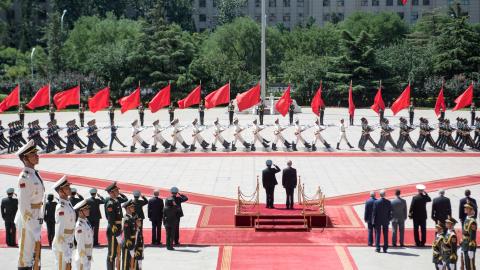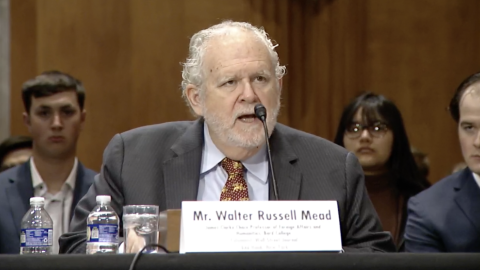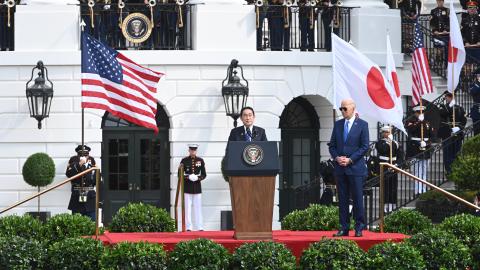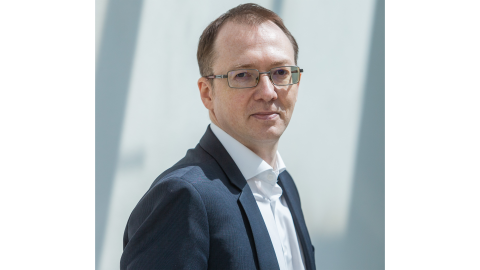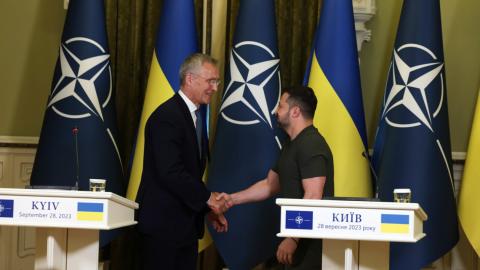The echoes of Russia’s advance in the Ukrainian war rumble across Europe, particularly in the Baltic states, where anxiety is clearly on the rise. Minister of Foreign Affairs of Lithuania, Gabrielius Landsbergis, addressing the UN Security Council in February 2024, summarised the dominant concern: “If we fail, the rules-based order will crumble. Ukraine’s sovereignty, Europe’s security, as well as the success of global efforts for human rights, accountability, food security and nuclear safety - will all be in the hands of those who benefit from disruption and chaos ... Hedging our bets earns us nothing but more war. Russia is being emboldened by our cautious response“.
While acknowledging these legitimate concerns, avoiding succumbing to alarmism is imperative. Instead, we must wield a steely gaze guided by reason and proactive deterrence. Fear and anxiety must not paralyse our societies or decision-making. On both sides of the Atlantic, NATO countries’ leaders must seize this moment to reassess their defence postures. Increased investment in conventional and nuclear deterrence and bolstered military capabilities is a proactive, not panicked, response to change.
Amidst all challenges related to different modes of civil and military planning (in Lithuania, we are already in a “pre-war” mode, but only in rhetoric), we must not lose sight of the fundamental differences between the Ukraine war and a hypothetical Russia’s confrontation with NATO. Russia, depleted in equipment and personnel, is unlikely to challenge the alliance militarily. Kremlin’s true power lies in sowing discord, exploiting societal vulnerabilities, and weakening resolve in democracies. We must not fall prey to this tactic.
The upcoming NATO Summit in Washington will be watched, seeking a sign that the resolve in the US and Europe to deter Russia is on increase, supplemented by clear commitments to solidify military means and political will. This is why NATO must ensure a solid outcome regarding Ukraine at the Washington summit. The mere survival of Ukraine is not enough. Ukraine must be equipped properly to win the war and provide a clear path to NATO membership. Therefore, a key to the success of deterring Russia lies in extending an invitation for Ukrainian membership already this July, with the final date of accession contingent upon securing a stable security environment within the country. An invitation to join NATO does not mean immediate membership. It could signify a long-term commitment and serve as a powerful message of solidarity, deterring further Russian aggression.
Luke Coffey, the senior fellow at the Hudson Institute (Washington DC), in his testimony for the Foreign Relations Subcommittee on Europe and Regional Security Cooperation of the United States Senate, in February 2024, even provided the specific wording that could be included in the NATO communique:
“We fully support Ukraine’s right to choose its own security arrangements. We reaffirm the commitment made at the 2008 summit in Bucharest that Ukraine will become a member of NATO. We reaffirm the commitment made at the 2023 summit in Vilnius that Ukraine’s future is in NATO. Today we extend an invitation to Ukraine to join the alliance with the final date of membership to be determined when Allies agree that the security environment inside the country is satisfactory. Ukraine has become increasingly interoperable and politically integrated with the alliance and has made substantial progress on its reform path. We reaffirm the decision made at the 2023 summit in Vilnius that Ukraine’s path to full Euro-Atlantic integration has moved beyond the need for the Membership Action Plan. NATO’s commitment made at the 2008 summit in Bucharest, Ukraine’s reforms in the defense and security sectors since 2014, its candidacy status for EU membership in June 2022, the official commencement of accession talks for EU membership in December 2023, noting that the EU has a mutual defense clause (Article 42.7 TEU) based on the ideas of NATO’s Article 5, the G7’s Joint Declaration of Support for Ukraine in July 2023, and the United Kingdom’s Agreement on Security Co-operation with Ukraine in January 2024, all underpin our decision to extend an invitation to Ukraine today.”
This proposition aligns with what Ukraine and the Baltic states are waiting for – a resolved confirmation that NATO is ready to get on counter-offence vs Russia, at least in a political way. Let us channel our anxieties into a renewed commitment to proactive deterrence and unwavering support for Ukraine. With unwavering resolve and strategic action, we can effectively deter Russia, secure Ukraine’s future, and ensure Europe’s stability.



